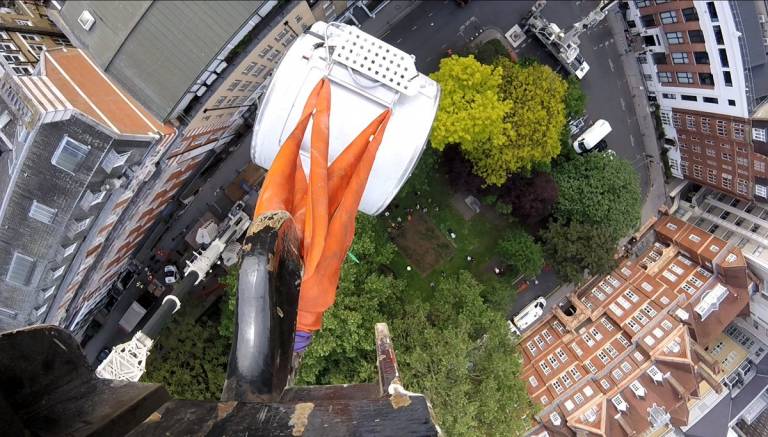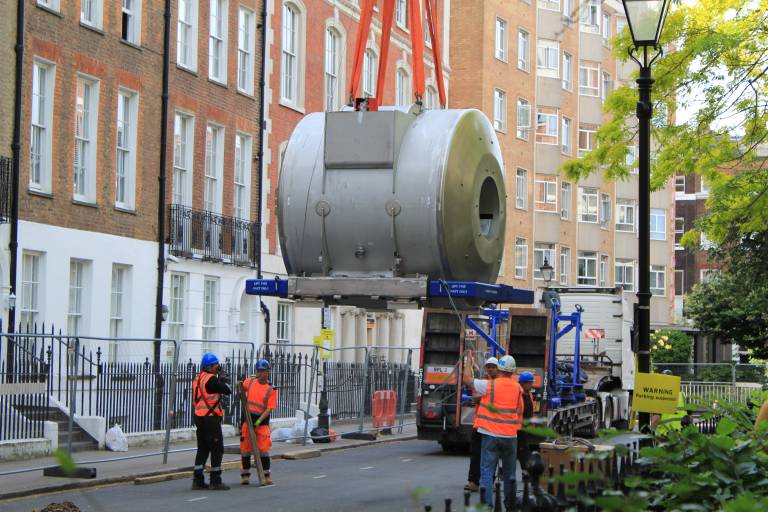State of the Art 7 Telsa MRI scanner installed at the Wellcome Centre for Human Neuroimaging
4 June 2019
On 25th May, an ultra-high field magnetic resonance imaging (MRI) scanner was delivered to the Wellcome Centre for Human Neuroimaging (WCHN), the culmination of years of planning at the Centre.

A crane lowered the 19 tonne 7T MAGNETOM Terra, made by Siemens Healthineers, into the specialist scanning suite, affording a unique photo opportunity of UCL Queen Square Institute of Neurology.
MRI is a non-invasive imaging technique that uses magnetic fields to characterise tissue structure and function. The new state-of-the-art scanner operates with a very strong 7T magnet – 140,000 times stronger than the Earth’s own magnetic field.
This improves the signal-to-noise ratio compared to the Centre’s existing 3T scanners and will dramatically increase the sensitivity and specificity of neuroimaging at WCHN. This could help find ways to diagnose neurodegenerative conditions before symptoms appear and better assess the function of different areas of the brain.
Researchers at WCHN hope that 7T work will advance clinical practice as well as enhance basic understanding of the human brain.

Dr Martina Callaghan, Head of Physics at WCHN, said: “The arrival of the 7T MRI scanner is a very exciting time for our Centre because it greatly advances our capacity to answer lots of different neuroscientific questions. We aim to exploit the scanner’s much higher sensitivity to gain mechanistic understanding into various neurological and psychiatric disorders.
“For example, we will seek to identify very small, subtle changes in the brain’s microstructure at early stages of disease, ideally before clinical symptoms are present. This would allow us to develop and assess therapies targeting several different neurodegenerative diseases. In collaboration with our many clinical partners across Queen Square we will endeavour to use this advanced technology to improve patient care.”
To start working with the new scanner as soon as possible, the Centre’s Physics team have been engaged in multiple collaborations with other 7T sites including the UK7T network which brings together the seven sites in the UK with 7T MRI machines.
Continuing its strong history of methodological development, WCHN aims to also address the technical challenges posed by the ultra-high field MR scanner and establish 7T techniques for an array of neuro-physical measures, neurochemical studies, and MRI analysis software. Targeting progress in healthcare, there are also plans to use the 7T to identify more informative ways to use existing hospital scans.
 Close
Close

